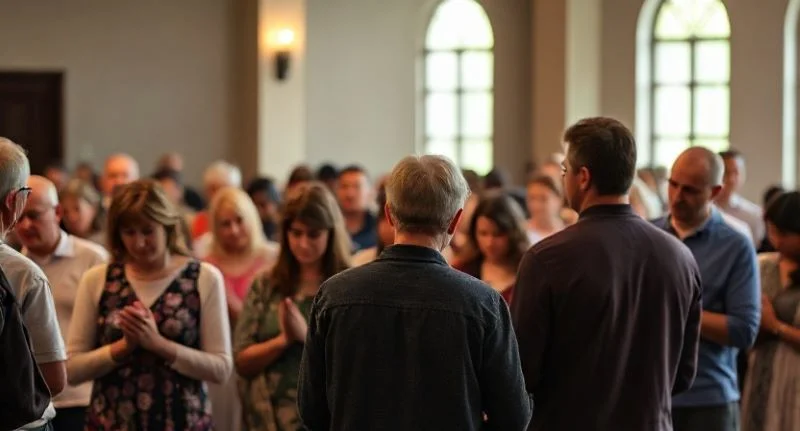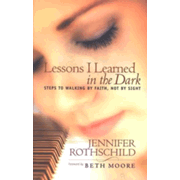
Ever thought of life as a journey rather than a destination? The Bible often uses the metaphor of walking to describe how we should live our day-to-day lives. It’s about moving forward, making choices, and navigating through what life throws our way.
Digging into 2 Corinthians 5:6–9, the Apostle Paul encourages believers not to get bogged down by what’s in front of them but to focus on what truly matters: the eternal stuff that doesn’t fade away.
Paul’s teaching is spot on for anyone who’s felt overwhelmed by the chaos of life. It’s like he’s saying, “Hey, don’t just stare at the roadblocks. Look beyond them!”
Biblical Foundations: Seeing Beyond the Visible
Paul’s life was a testament to this balance of faith and sight. He lived in a way that didn’t just react to the visible troubles but kept his eyes fixed on God’s larger, unseen plan.
As believers, we’re called to do the same: to trust not only what we can physically see but also in what lies ahead: the hope, promises, and faithfulness of God that aren’t always visible yet are absolutely real.
Looking at different stories throughout the Bible, there are countless examples where faith in what’s not immediately visible paved the way for deeper truths. Whether it’s Abraham stepping into unknown lands or Moses leading God’s people with nothing but His promise.
Scripture is packed with people who left their comfort zones, trusting in a bigger picture.
Challenging the “Irrational” Label of Faith

Faith often gets a bad rap, seen as some kind of blind leap into the unknown. Let’s clear that up. True faith isn’t about ditching your brain or common sense. It’s not about wandering through life with your eyes closed, pretending the struggles or questions don’t exist.
Faith actually complements reasoning. Think of it as a lens that brings clarity to what you see, brightening your view so you can see beyond the immediate, tangible stuff. It’s about feeling confident even when the path ahead is unclear because you trust the One guiding you.
Imagine driving a car at night. You can only see as far as your headlights go, but you trust the road continues beyond your view. That’s what faith is like; not everything is apparent, but your conviction, grounded in God’s Word and past faithfulness, assures you there’s a solid path forward.
The Bible gives us countless illustrations: Daniel stood firm in the lions’ den, not because he was reckless, but because he trusted God’s power. Mary stepped into the unknown when she agreed to mother Jesus, embracing uncertainty with a heart of faith.
So, faith isn’t contrary to reasoning at all. When your reasoning and faith join hands, life’s journey becomes a dynamic interplay that’s as logical as it is inspiring.
But let’s be honest, walking by faith doesn’t mean life will always be smooth. Paul’s own story proves that trusting God doesn’t remove hardship; it equips us to endure it with hope. And this isn’t just something we read about in Scripture; it’s something many of us experience in our own lives.
Realism in Hardship: Trusting God Through Uncertainty
Paul’s life reminds us that walking by faith doesn’t guarantee ease or comfort. In fact, his ministry was marked by beatings, imprisonments, shipwrecks, and rejection. Yet, he endured because his eyes were fixed not on what was seen, but on what was unseen: God’s eternal promises (2 Corinthians 4:16–18).
And this isn’t just true for the apostle Paul. Many of us encounter moments when walking by faith means stepping into the unknown, trusting God even when circumstances don’t make sense.
A Personal Story: Leaving a Secure Job for God’s Calling
For me, one of those moments came when I gave up a secure job overseas. It provided a steady income, more than I had ever earned before. By sight, it made sense to stay where the finances were stable and the future looked predictable.
But I knew God was calling me into a new season: coming home, supporting our local church, starting a family, raising our little boy, and pursuing the writing ministry He had placed on my heart.
On paper, it didn’t make sense. The numbers didn’t add up. Yet by faith, I chose to obey.
Looking back, I can see how God provided every step of the way, often in ways I could never have imagined. What looked like a step backward by sight has become one of the most fruitful and joy-filled seasons of my life.
Reflection for the Reader
Maybe you’ve faced (or are facing) a similar crossroads, a career change, a financial decision, a family situation, where faith pulls you one way while circumstances scream the opposite. Walking by faith doesn’t mean ignoring reality; it means trusting God’s reality more than your own.
The question is: Will you choose to live by what you can see, or by the unseen promises of God?
Whole-Person Trust and Active Steps

That’s the heart of walking by faith; it isn’t just about one big decision; it’s about an ongoing posture of trust. Faith touches every part of who we are: our mind, our heart, and our daily choices.
1️⃣ Mind
Faith requires us to renew our thinking with God’s Word instead of being ruled by fear or appearances (Romans 12:2).
2️⃣ Heart
Faith asks us to anchor our emotions in God’s promises, finding peace in His presence even when life feels uncertain (Philippians 4:6–7).
3️⃣ Choices
Faith shows up in practical obedience, whether it’s stepping into a calling, forgiving someone who hurt us, or giving generously when finances are tight.
This is exactly what Abraham did when he left his homeland without knowing his destination (Hebrews 11:8). It’s what Moses did when he faced Pharaoh, trusting God to deliver His people. It’s what David did when he faced Goliath with nothing but a sling and confidence in the Lord.
And it’s what you and I are invited to do every single day. Walking by faith isn’t a one-time leap; it’s a daily step—choosing to trust God’s character more than what we can see, feel, or control. Each decision, each act of obedience, is a chance to strengthen our faith and live in alignment with God’s eternal purposes.
Embracing Confident Living Through Trust in God’s Provision
Life throws us curveballs, no doubt about it. But imagine having a guide who not only has the map but has already walked every twist and turn on the road ahead. That’s what trusting God is like. It’s not about jumping into the unknown recklessly; it’s about taking deliberate, well-thought-out steps because you trust the One guiding you.
Trusting God doesn’t mean everything magically falls into place. It means making informed choices while standing on a rock-solid foundation. God’s promises act like a compass, pointing the way even when the future seems foggy. In the hope of eternal life, there’s a peace that can weather any storm.
Think of the times you’ve started something new: a job, a move, a project. You rely on the knowledge you have, but there’s also confidence that comes from preparation and insight. Faith works similarly: it’s confidence rooted in God’s character, knowing He is at work even when we can’t see the full picture.
The beauty is that with every step, we participate in something far bigger than our daily grind. Trust fuels resilience: the stamina to keep moving, confident that we are backed by an eternal, faithful God. Whether life is smooth or chaotic, His guidance provides peace and direction.
Faith as a Catalyst for Engagement, Not Escapism

Walking by faith might sound like running away from reality, but in truth, faith invites us to dive into life with eyes wide open. It’s being so grounded in what we believe that we can fully engage even when things get messy.
Faith isn’t passive; it sparks action, compassion, and involvement in the world around us. It motivates us to serve communities, help rebuild lives, and offer comfort where it’s most needed. Faith moves us beyond ourselves, giving purpose to our actions and encouraging evangelism, love, and service.
It also strengthens the community. Shared faith builds bonds, creating networks of support when life feels shaky. Small acts of faith: reaching out to someone struggling, standing for justice, offering encouragement—combine to make meaningful change.
Faith is not only personal; it’s relational, connecting us and inspiring others to trust and act alongside us.
Conclusion: Walking a Path of Visionary Faith
Walking by faith doesn’t mean ignoring the here and now. It means living grounded in something bigger than the visible world. This faith is practical, sturdy, and ready for the long haul.
Start by reflecting on your worldview. Ask yourself: Is my heart resting on what I can see, or on God’s eternal promises? Focusing on what truly lasts brings clarity and purpose to everything else.
Intentional practices: Bible reading, prayer, community engagement, and conscious trust turn faith from an abstract idea into a lived reality. They anchor you in the storm, steady your steps, and keep your mind clear.
Finally, remember that this walk isn’t solo. Share your insights, learn from others, and encourage one another. When we walk by faith together, we build a world not just grounded in sight, but in enduring vision.
Key Takeaways: Walking by Faith and Not by Sight
- Walking by faith means trusting God even when the path ahead isn’t clear.
- Faith is not blind; it complements reasoning, guiding our mind, heart, and choices.
- Life will have hardships, but God’s unseen promises are our anchor.
- Faith is active: it inspires obedience, engagement, and community-building.
- Daily steps of trust in God lead to confident, visionary living.
This post contains affiliate links, which means I may earn a commission at no extra cost to you if you make a purchase through one of these links. I only recommend products or services I trust and personally use. Thank you for supporting Biblical Christianity!
Recommended Resource
If you want to go deeper in learning how to trust God when life feels uncertain, I highly recommend Lessons I Learned in the Dark by Jennifer Rothschild.

|
Lessons I Learned in the Dark By Jennifer Rothschild At the age of fifteen, Jennifer Rothschild faced two unshakable realities: blindness is inevitable and God is enough. In this heartfelt book, she shares poignant autobiographical sketches that illuminate a path of freedom and fulfillment despite adversity. Through her experiences as a student, newlywed, parent, and friend, Jennifer shows what it truly means to walk by faith and trust God when you can’t see the way forward. |
